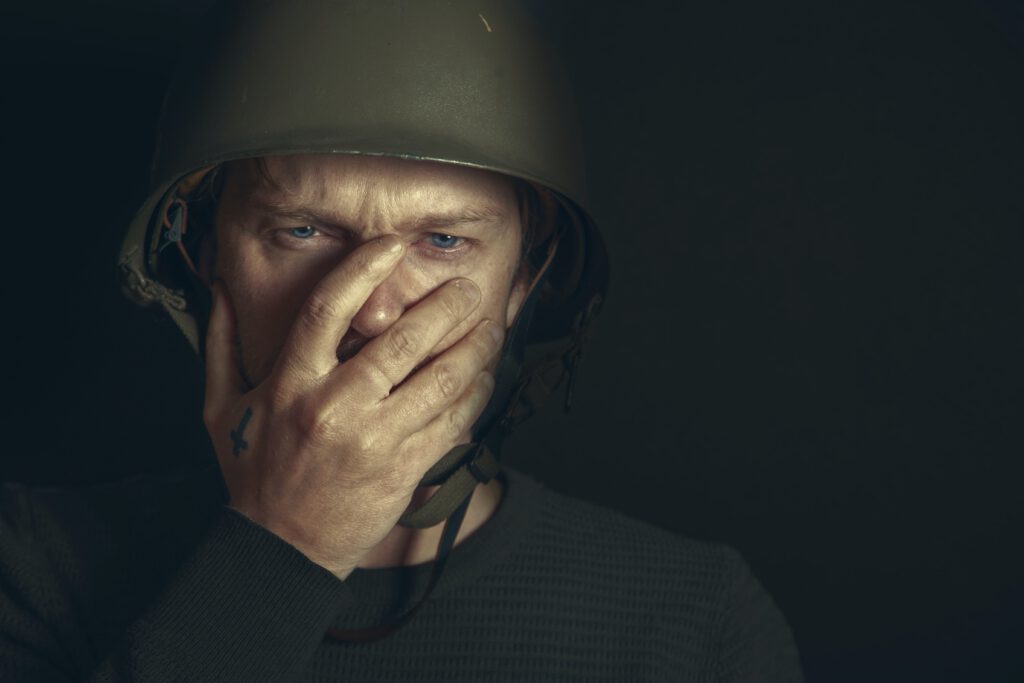Dreams of tough guys. How Putin’s war in Ukraine reactivates militarised masculinity!
Russia’s attack on Ukraine in February, which violated international law, not only marks a serious break in Russian-Western relations, Putin’s war also reactivates the old image of men as soldiers. Putin is waging a war that he cannot call war. Under false claim, Putin is recruiting young men as soldiers for his “special operation”.
In Ukraine, men between 18 and 60 are called to arms for national defence and are not allowed to leave the country. A critical look at the discourse on Putin’s war shows: Public opinion is no longer unanimous that a man has not to defend his fatherland with a gun like a hero.

We talk about the current situation in Ukraine, images of masculinity in the Russian political culture, their role in the stability of Putin’s regime and the evident relapse into militarised masculinity.
Markus Theunert (CH) is 49 years old and lives in Zurich. He studied psychology and sociology at the universities of Basel and Bern. He is programme manager at MenCare Switzerland and overall manager at männer.ch. In his work he builds bridges between feminism, gender studies, men’s work and men’s emancipation.
On behalf of the Federal Ministry for Family Affairs, Senior Citizens, Women and Youth, he has developed the strategy for the inclusion of boys and men in gender equality policy. He recently published the essay “They’re dreaming of tough guys again”.
Alex Belopolsky is 36 years old and was born in Kharkiv, Ukraine. Belopolsky has been living and working in Germany as a freelance journalist and media expert since 2013.
Belopolsky has written for the Süddeutsche Zeitung, the Frankfurter Allgemeine Zeitung and the Tagesspiegel, among others, and deals with the topics of culture, identity and gender. Since 2020, Belopolsky has been a member of the initiative group Munich Kyiv Queer and is committed to the rights of Ukrainian LGBTIQ*.
Dr. des. Simon Primus is 35 years old, a political scientist and a staff member at the Geschwister-Scholl Institute for Political Science at Ludwig Maximilians University in Munich. His research focuses, among other things, on the stability of dictatorships and democracies, as well as conditions and obstacles for regime change.
He is also a board member of the association Commit e.V. Munich, where he has helped to plan and implement numerous global political education projects in recent years.
Stefan-Maria Mittendorf is 53 years old, an art historian, curator of contemporary art and has been the temporary exhibition director at the Pasinger Fabrik since 1st of February 2022.
In 2018, Mittendorf curated the exhibition “Ukraine: Learning from a good neighbour” and in 2019 “We are there, where we were going. A reserve look into tomorrow of Eastern Partnership Countries: Ukraine, Moldova, Georgia”. Both exhibitions were created in cooperation with the Consulate General of Ukraine in Munich.
A benefit event by Pasinger Fabrik in cooperation with the Friedrich Ebert Foundation / Bavaria and Munich Kyiv Queer.
When: Wednesday, 20 April, 8 pm
Where: Pasinger Fabrik, Kleine Bühne, August-Exter-Straße 1, Munich
Admission: free, donations welcome
Contact: www.pasinger-fabrik.de
Organized by: Pasinger Fabrik, Friedrich-Ebert-Stiftung / Bavaria, Munich Kyiv Queer
